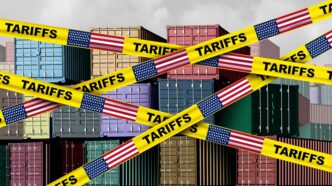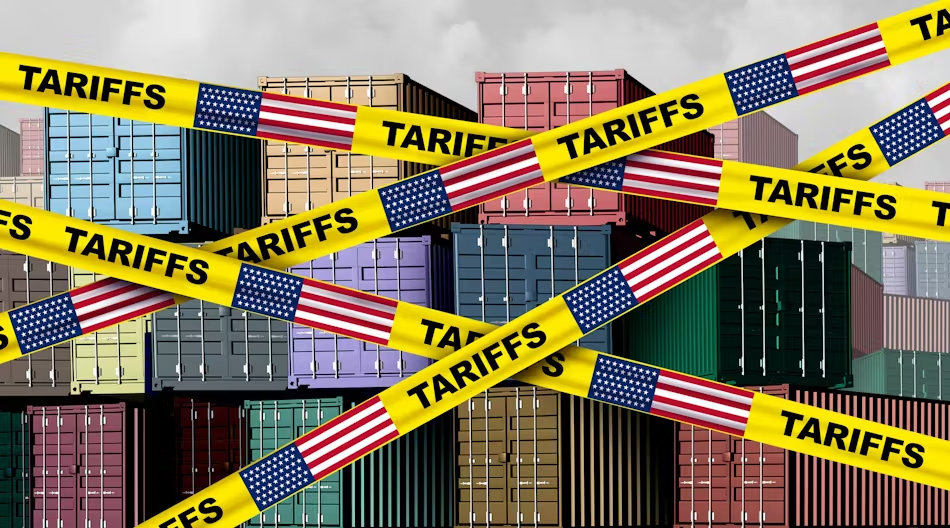Unlike public companies, startup valuations aren’t known for wild day-to-day swings. Their pricing typically moves at a slower pace, changing mostly during new funding rounds. But that doesn’t mean they’re immune to market shocks—and what we’re seeing now is raising red flags for the startup ecosystem.
Earlier today, the Nasdaq Composite Index plunged 4.8% by midday. The sharp drop followed a new directive from President Trump, who announced sweeping tariffs on imported goods. The move introduces a baseline 10% tariff across the board, with even steeper rates targeting specific countries.
Unsurprisingly, the immediate market reaction was brutal. Consumer-focused and tech giants like Amazon, Apple, Nike, and Wayfair saw shares tumble by 7%, 8%, 10%, and a whopping 25%, respectively. Investors are clearly bracing for higher consumer prices, weaker demand, and tighter margins as companies scramble to offset the rising cost of imported goods.
Will Startups Feel the Impact Too?
So far, private startups haven’t seen their valuations slashed overnight. Unlike public stocks, startups typically reprice only during major funding rounds—which might happen every quarter or even after a couple of years. This delay acts as a buffer, but it also means they might be walking blindfolded into a downturn.
Take OpenAI, for example. It recently locked in a hefty $300 billion post-money valuation, while the newly merged X and xAI came in at $113 billion. For now, these numbers are holding steady, even as Nvidia, a key AI hardware supplier, saw its stock drop by 5%.
But the concern is what comes next.
We’re only two years removed from the last big valuation reset. After peaking in 2021, countless unicorns ended up raising at lower valuations—or worse, shutting down or filing for bankruptcy. Many are still trying to recover from that wave.
Now, just as startup exits were starting to show signs of life again, another economic hurdle appears.
IPOs and M&A Were Rebounding—Until Now
In 2023 and 2024, the tech IPO market was barely moving. But this year brought fresh energy. CoreWeave made a splash with a $24 billion public debut just last week. Klarna and Circle are also prepping to go public soon.
We were also seeing an uptick in billion-dollar M&A deals. Google’s $32 billion plan to acquire cybersecurity startup Wiz is one of the biggest in years. Other tech giants were beginning to re-enter the acquisition game, signaling a recovery in exit opportunities.
But now, that momentum could stall. A tariff-triggered market downturn might cool investor appetite just when the startup scene was beginning to heat up again.
Tariffs That Are Both Unpopular and Pointless
Looking for a silver lining? Oddly enough, it may lie in the very backlash we’re seeing.
Sometimes in life—and reality TV—a bad idea can still work if it’s popular. But when something is both dumb and deeply unpopular, it tends to fail fast.
That logic might apply here. The tariffs are already tanking the markets. And there’s little public or investor support behind them. If policymakers see just how damaging and disliked this move is, there’s a slim chance they could reverse course.
Sure, it’s a long shot. But if enough pressure builds, smarter economic decisions might follow. In the meantime, founders and investors would be wise to keep their eyes on macro trends—because even if the effects are delayed, the startup world isn’t safe from turbulence.













